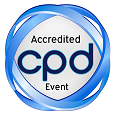
Biljana Škrbić
University of Novi Sad, Serbia
Title: Multi-mycotoxin determination in rice collected from Serbia using ultra-high performance liquid chromatography coupled to triple quadrupole mass spectrometry
Biography
Biography: Biljana Škrbić
Abstract
As a crude extract method followed by ultra-high performance liquid chromatography–tandem mass spectrometry (UHPLC–MS/MS) is a technique that has been frequently used as a routine analytical technique for mycotoxins in wheayt and corn, which applicability has been also demonstrated successfully on other matrices by the team, the intention of this presentation was to further provide the evidence on the method applicability for mycotoxin analysis of rice samples, for UHPLC–MS/MS represents the most efficient and reliable analytical technique for high efficiency isolation, unequivocal identification and accurate quantification. Thus, in present investigation, a reliable UHPLC–MS/MS method was developed and validated for simultaneous determination of twelve mycotoxins (aflatoxin B1, aflatoxin B2, aflatoxin G1, aflatoxin G2, ochratoxin A, zearalenone, T-2 toxin, HT-2 toxin deoxynivalenol, citrinin, fumonisin B1 and fumonisin B2) in rice. One-step extraction using solvent mixtures of acetonitrile/water/acetic acid (79:20:1, v/v/v) without any clean-up (i.e. crude extract method) was employed for the mycotoxins extraction from rice samples. Using matrix-matched calibration it has been demonstrated that the limits of quantification were below the relevant maximum contents established by the EU regulation in rice or other cereals. The recoveries of the developed method were satisfactory between 96%–126% with relative standard deviation lower than 12%. The validated method was applied on real samples. The obtained results are used to estimate the exposure of the Serbian population to mycotoxins. To the best of our knowledge, this is the first report on occurrence of the studied mycotoxins in rice commercially available in Serbia.

